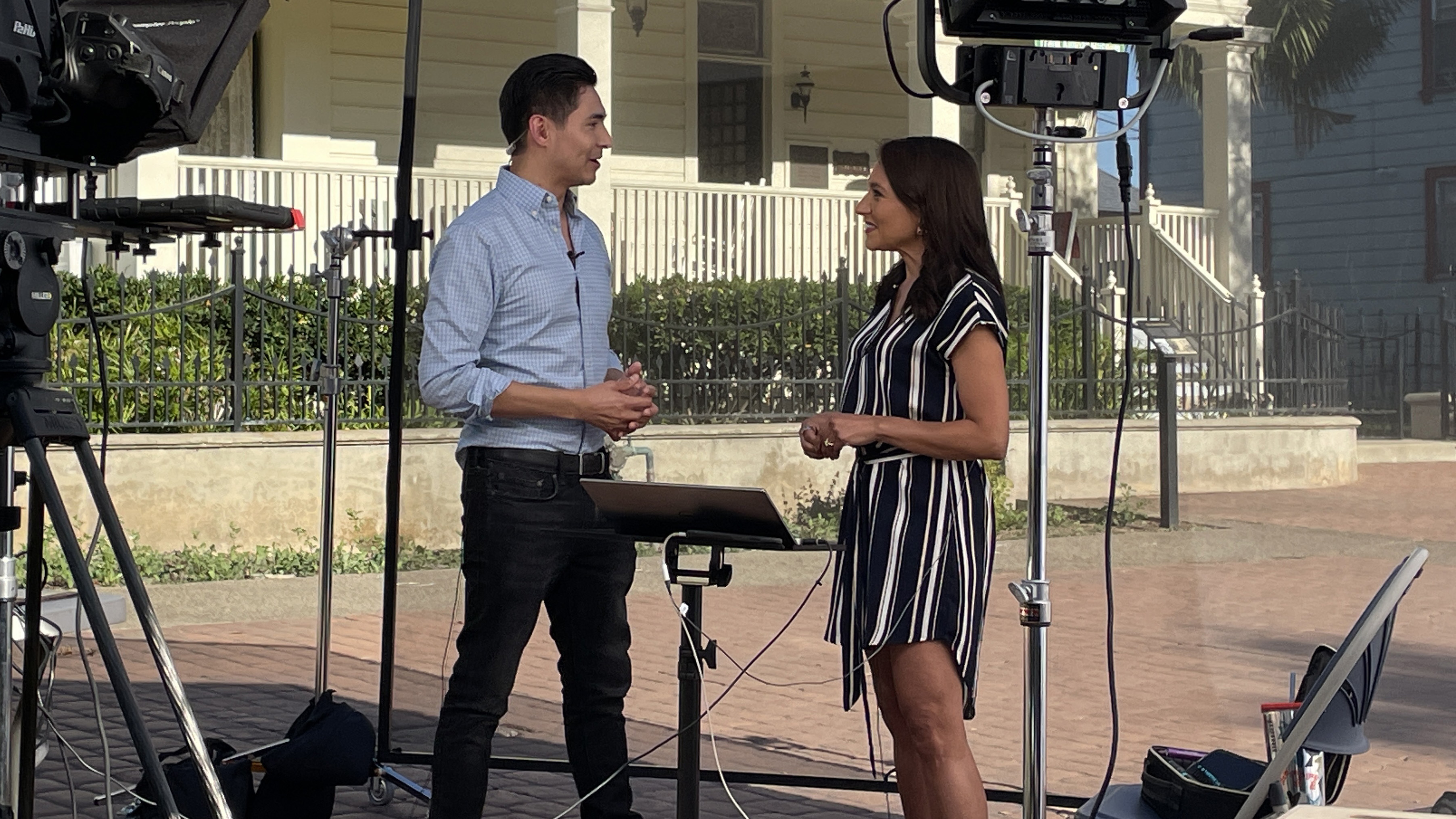Members of San Diego's City Council, San Diego County Board of Supervisors, the mayor of San Diego and Imperial Beach plus leaders from Caltrans and the Port of San Diego — among even more — descended on Washington D.C. this week to lobby for federal funding for San Diego and shine a spotlight on key issues and priorities for the region.
The trip includes meetings with U.S. Customs and Border Protection officials to talk about cross-border wait times and the Mexican Ambassador to discuss cross-border pollution, trade and meetings with the Department of Transportation officials to talk about how to get money from the Inflation Reduction Act. The DOT meeting included details about how to fill out competitive applications that would make San Diego's projects stand out and discussed potential challenges or hurdles an applicant might face in the process.
"Sometimes we send letters, we talk about the issues, we have a wonderful delegation that understands how important these issues are for us, but nothing compares to us being in front of them and being able to share what we actually need and what else we could actually connect on so that we can move forward," said Chair of San Diego County Board of Supervisors, Nora Vargas.
Get San Diego local news, weather forecasts, sports and lifestyle stories to your inbox. Sign up for NBC San Diego newsletters.
Mayor Gloria said discussions that started on this trip played a role in San Diego securing $100 million for a third land port of entry at the border from the Bipartisan Infrastructure Deal. Having government officials meet directly with local leaders in San Diego about issues and concerns that are top of mind for locals can have a huge impact, Mayor Gloria said.
"When we’re sitting there with them and explain to their colleagues: This is what this really means, this is what it means to have a four-hour-plus-long wait at the border, this is what it means to have a small business that is dependent on open beaches in south San Diego County when beaches are closed so often due to cross-border pollution. It's able to put a name and a face to these issues and I believe that those are stickier in the minds of decision makers than just the statistics," said Mayor Todd Gloria.
Local
Delegates will have an opportunity to speak with officials about coastal resiliency and disaster support on California's coast and talk to leaders from the U.S. Chamber of Commerce about changes to banking regulations and monetary policy that could impact companies' access to capital.
"All of the investments that we need to be making on storm water and sewage and everything more that we need to be doing to protect our beaches and coastline from toxic runoff is a huge priority as well as investments in climate infrastructure and climate resiliency to guard against wildfires and rising sea levels, but also to try to catalyze our green economy, create more green jobs, more local jobs so that we can be well-positioned as our entire world begins to transition away from fossil fuels," said Supervisor Terra Lawson-Remer about some of the big issues that she hoped to address on the trip.
Another big priority on this trip has been being competitive when it comes to securing funding for new housing projects in San Diego. Councilmembers Joe LaCava, Monica Montgomery-Steppe and Kent Lee attended a meeting with officials from the United States Department of Housing and Urban Development to talk about new funding options that were becoming available, how to qualify for that funding and how to make San Diego's applications more competitive.
"There is limited dollars and it only comes on these annual allocations so they want to make sure that when they do release that money and we do award them to a municipality that it is going to be used effectively and efficiently going forward and so reemphasizing that you're doing a great job, keep applying, we want those dollars to go where it can effectively help individuals," said Councilmember Joe LaCava.
Delegates paid anywhere from $1,900 to $4,000 to attend the Chamber of Commerce trip. It is unclear exactly how much federal funding San Diego gets that is a direct result from the meetings that occur during these trips.



